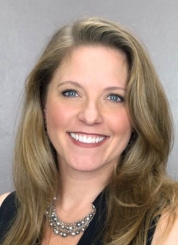In the Department of Communication at UCLA, the Co-Mind Lab has rerouted some of its “big data” projects to create an informational resource about the coronavirus crisis. This resource offers members of the UCLA community and wider public a bird’s-eye view of news media coverage of the crisis, including a Los Angeles “dashboard” that maps positive cases in the county.
https://co-mind.org/cogmedia/browse/covid.php
Dr. Rick Dale, professor in the Department of Communication, who leads the Co-Mind Lab, further discusses this important and timely research in the following piece:
As social scientists, we ask questions that are of fundamental importance to the situation: How is the media covering the crisis? What are changing themes or trends in wider news coverage? How can we quantify and explore the public’s conception of the health crisis? It is now well established that public discourse and behavior—social and cognitive issues—are also of great importance to public health.
The CogMedia (“Cognition and Media”) project is a new endeavor of our group, and its goal is to find linkages between cognitive science and media activity. For example, our group is testing how research findings in the lab regarding language processing (how the mind processes language) can help to predict the spread of information in news media.
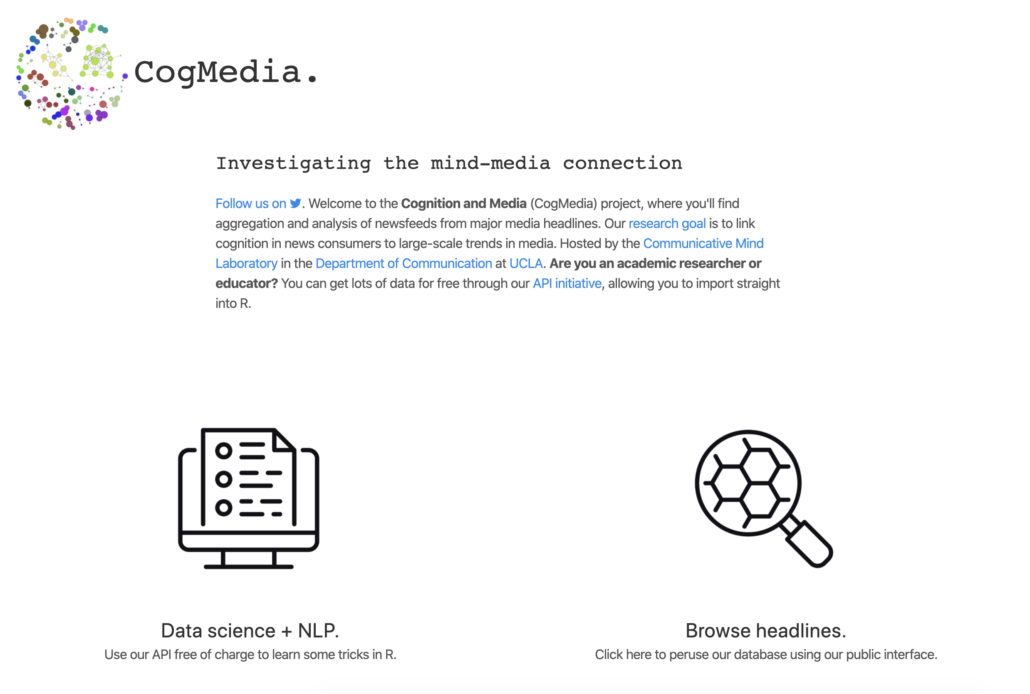
The project collects and analyzes many thousands of news items from major media each week. Despite its early stage of development, we decided to release information and resources to the public. One free resource is an application programming interface (API), so other researchers can use CogMedia’s data in a programming language called R. A second resource includes a news consumption platform for members of the public to track major news themes outside of “big tech” filtering.
At the onset of the crisis here, we reworked our project’s underlying code into a dashboard devoted to COVID-19. This dashboard is an “at-a-glance” tool, using automatic algorithms and data. We have hundreds of thousands of stories, and so we have a record of how news coverage has evolved, along with incoming coverage by the hundreds or thousands of stories per day. It seemed important to shape this information into something of direct relevance to this rapidly moving situation, and share it widely for all who may take interest in our approach.
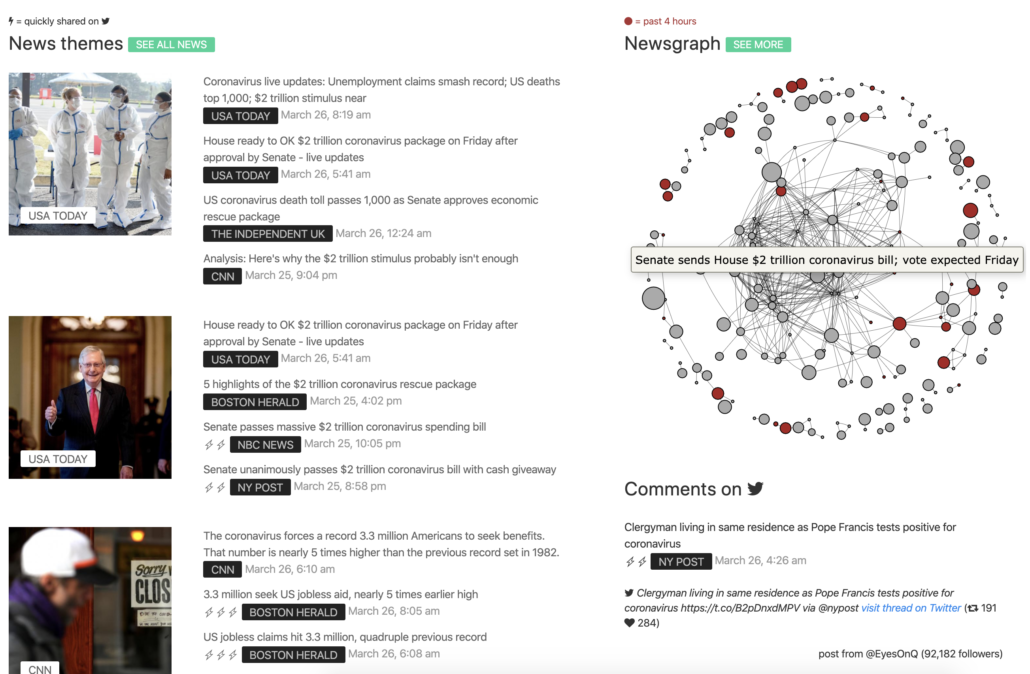
For example, one resource we share is a kind of analysis on news stories referred to as the “newsgraph.” Stories that are related in their language, such as the words they use, can be interconnected into a diagram. This network diagram quickly reveals “clusters” of news stories and themes.
Consider the diagram below, from the morning of my writing (March 26th, 2020). We see the largest cluster of related news stories is the passage by the Senate of the coronavirus assistance bill. With this visualization, users can quickly see where much of the media attention is going. The network marks stories that are widely shared on social media (the size of the dot) and the relative recency (new stories are in red).
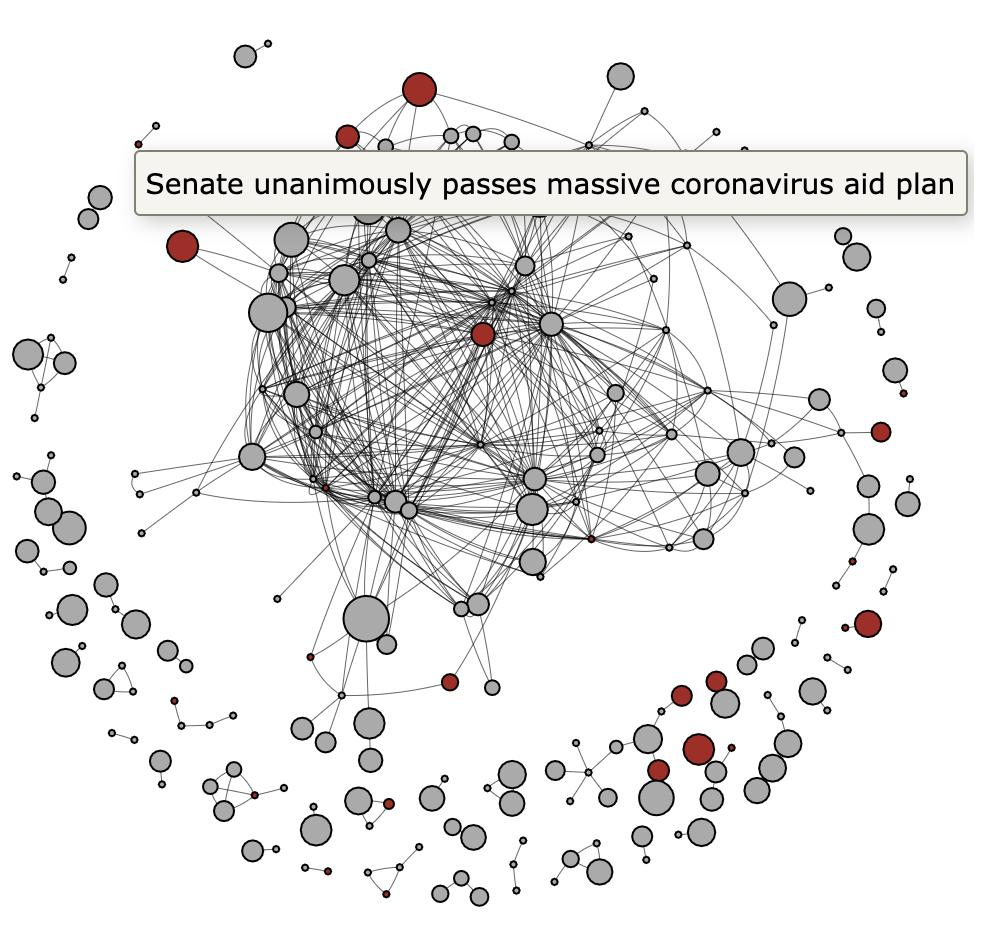
We also created a specific
Los Angeles dashboard in the system. Here we have used Google’s API and case lists from LA Public Health to offer an animated map of positive test results across the region. In addition, we filtered results to prominent news items from the
Los Angeles Times and a Twitter feed from
LA Public Health itself. We will continue to expand this offering over the coming days and weeks as we organize our own information and integrate information from other sources.
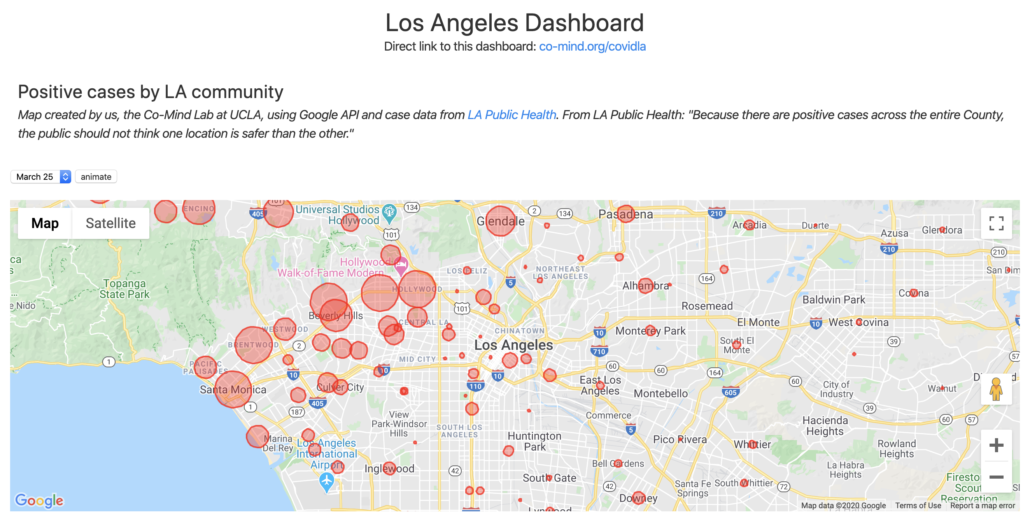
More broadly, the Department of Communication at UCLA specializes in this “big data” research. Faculty in the department are developing cutting-edge tools and studies. They are creating an unprecedented TV News archive called NewsScape, political and social media analysis, and media-analysis applications using state-of-the-art machine learning and other quantitative methods. For example, the NewsScape contains over 15 years of wide ranging TV news, and faculty Tim Groeling and collaborators are continuously adding to the archive. The Department of Communication will be admitting its first graduate students in a new Ph.D. program this fall, and there will be great interest among our new students in using these tools to further our understanding of the lead up and evolution of the present crisis.
Subscribe to LA Social Science and be the first to learn more insight and knowledge from UCLA social science experts in upcoming video/audio sessions and posts dealing with the COVID-19 pandemic.
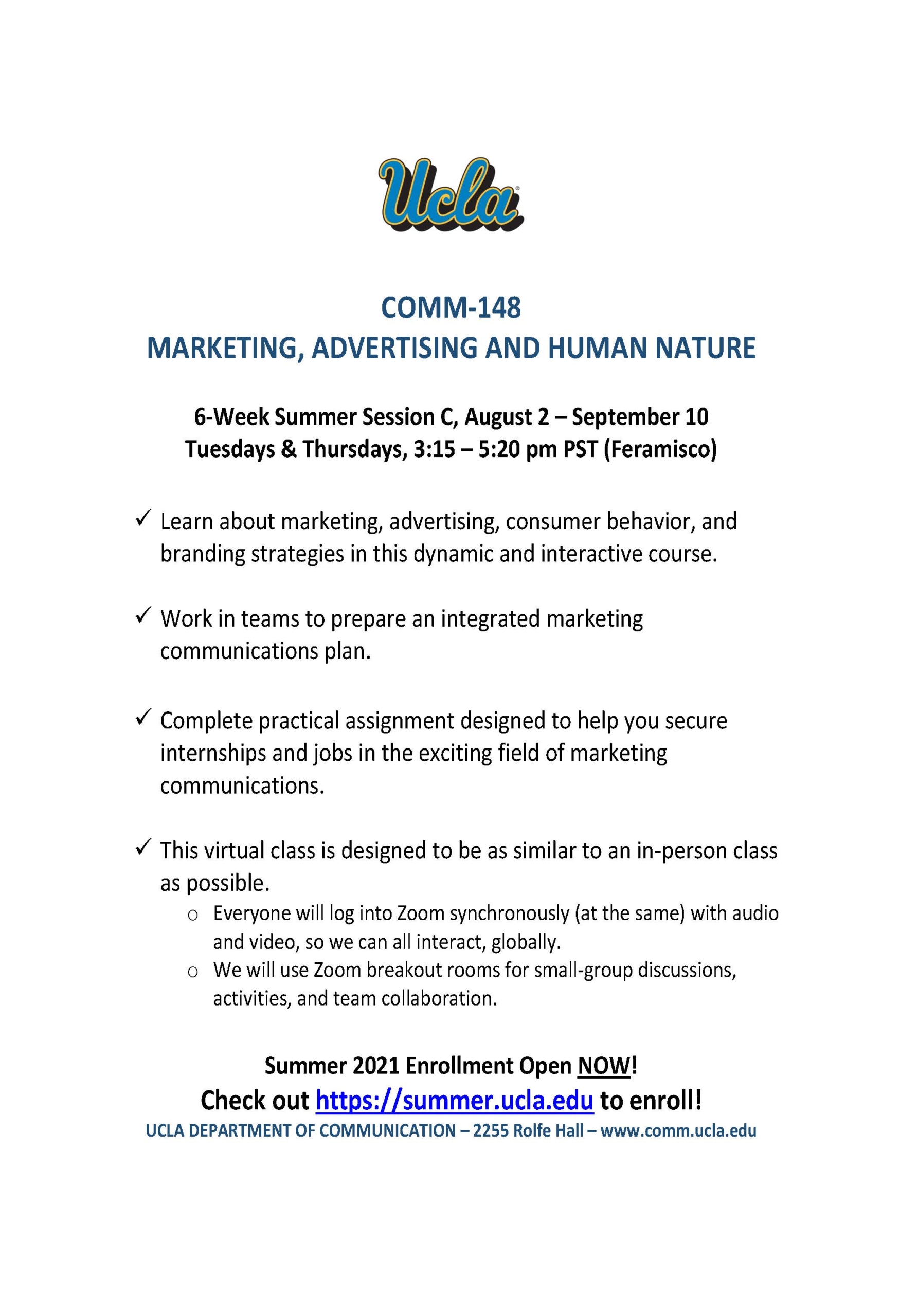

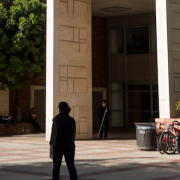
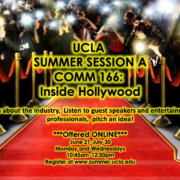
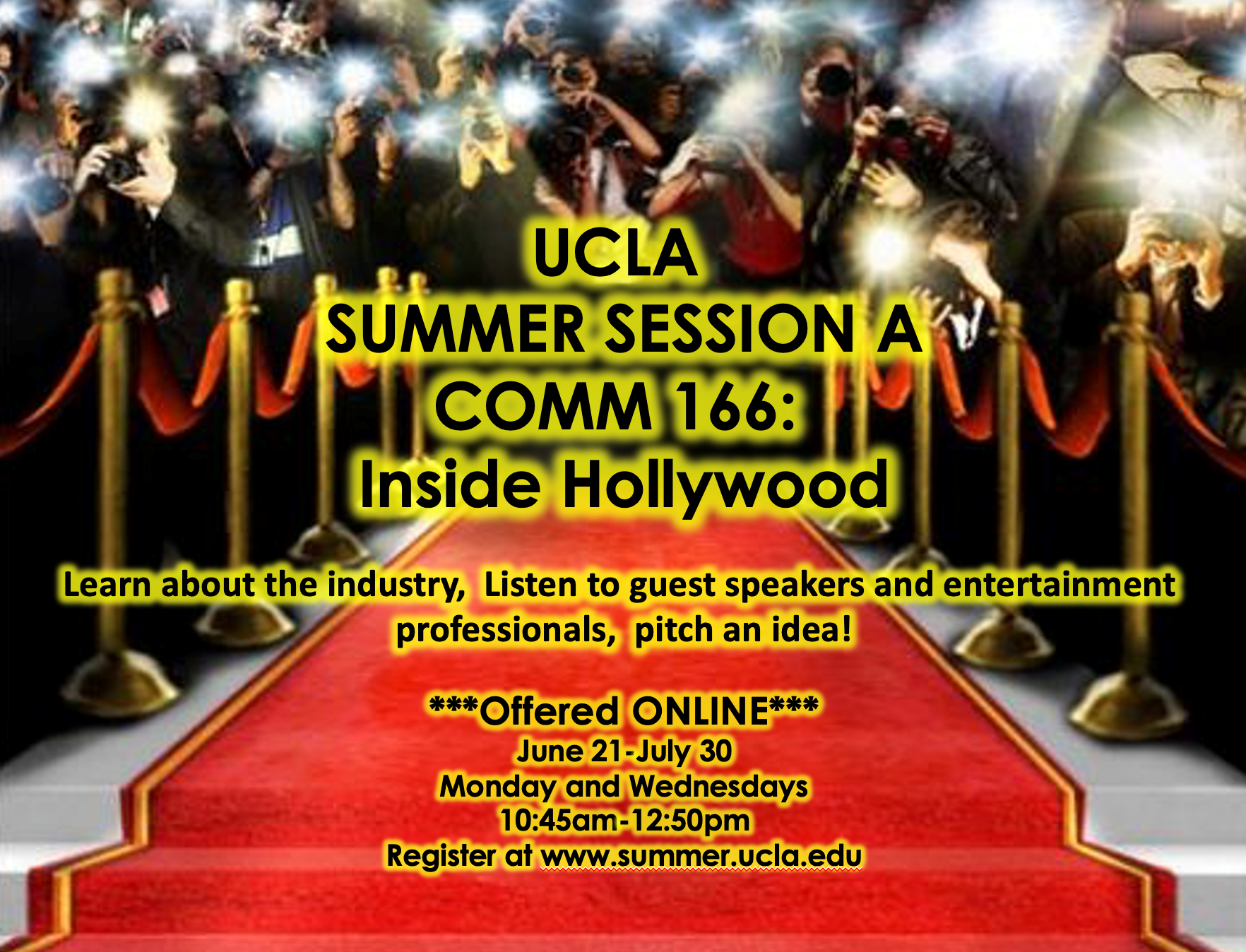
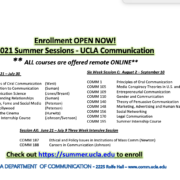
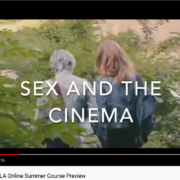
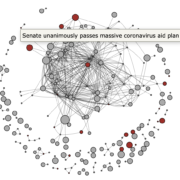




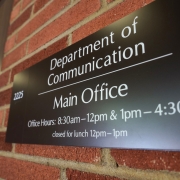
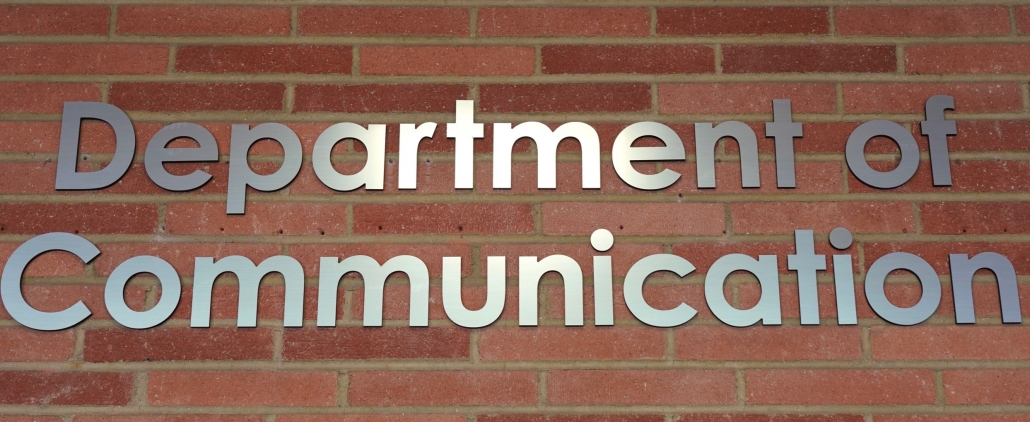 The UCLA
The UCLA 
